
BUN (Blood Urea Nitrogen) Test
BUN (Blood Urea Nitrogen) Test
BUN test measures the level of urea nitrogen in your blood. Urea is a waste product produced by your kidney as a result of metabolizing the protein in your diet. Higher levels of BUN values may be an indication of kidney diseases. A BUN test helps to know if you have an abnormally functioning kidney and with detection at the initial stages, you can receive early treatment. Thus, getting your BUN done is recommended to prevent various kidney-related complications.
BUN test is also known as Urea nitrogen test, serum BUN.
What is a BUN test used for?
BUN test is used in the diagnosis of:
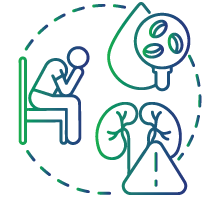
Kidney diseases
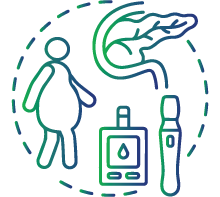
Diabetes
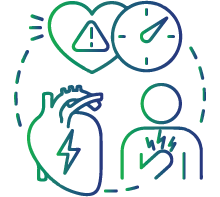
High blood pressure

Heart disease
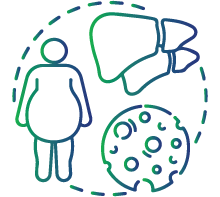
Liver damage

Malnutrition

Urinary tract obstruction
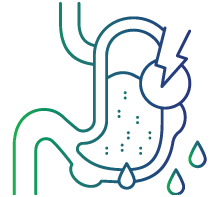
Gastrointestinal bleeding
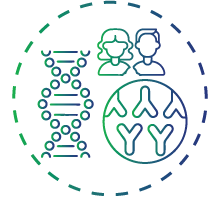
Family history of kidney disease
Who should get tested?
BUN test is recommended to be performed frequently in those individuals who have the following symptoms and risk factors:
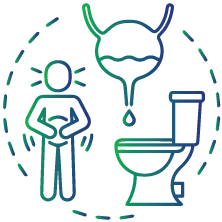
Having increased or decreased urinary frequency (pee)
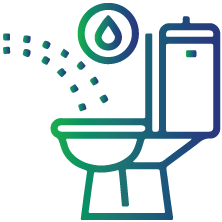
Blood in urine
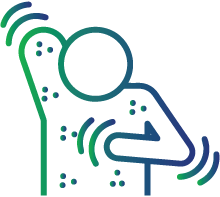
Itching

Fatigue
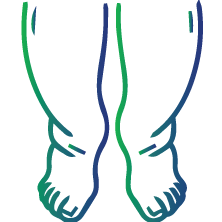
Swelling in your legs

Muscle cramps

Difficulty in sleeping

Loss of appetite
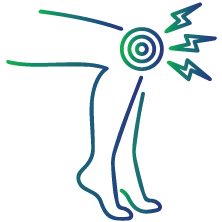
Joint or bone pain

Smoking
Test preparation:
A BUN test often requires no extra preparation. However, you might need to fast (not eat or drink) for a few hours prior to the test if your doctor has requested further testing on your blood sample. Make sure to follow the specific instructions given by your healthcare provider.
Interpretation of the results
The normal range of blood urea nitrogen may vary depending on your age and gender.
Blood Urea Nitrogen – Levels
|
Age and Sex |
Normal BUN Level (mg/dL) |
|
Children between the age of 1 and 17 years |
Between 7 and 20 mg/dL |
|
Adult females and people assigned female at birth |
Between 6 and 21 mg/dL |
|
Adult men and people assigned male at birth |
Between 8 and 24 mg/dL |
Deviation from normal levels indicates the following:
· BUN test is used by healthcare providers to help diagnose and monitor various causes of kidney diseases and the risk of having various metabolic diseases like diabetes, liver damage, and high blood pressure.
· Higher-than-normal levels of BUN may be due to underlying disease conditions like:
o Congestive heart failure
o Increased amount of dietary protein in the gastrointestinal tract
o Gastrointestinal bleeding
o Hypovolemia (dehydration)
o Heart attack
o Kidney diseases, including acute tubular necrosis, glomerulonephritis, and pyelonephritis
o Kidney failure
o Shock
o Urinary tract obstruction
· Lower-than-normal levels of BUN may be due to the following conditions :
o Liver failure
o Low protein diet
o Malnutrition
o Over-hydration
FAQs
What is the significance of the BUN test?
The BUN test determines the level of blood urea that is produced in your body. The screening, monitoring, diagnosis, and follow-up of kidney diseases as well as other medical conditions can all be done with a BUN blood test
What are the risks associated with the BUN test?
There are no known risks. During a blood test, one may experience minor pain or bruising where the needle was inserted, but most symptoms will subside quickly
What happens during the BUN test?
During this blood test, a healthcare professional will take a small amount of blood sample from a vein in your arm, using a small needle, which is collected into a test tube or vial. This usually takes place within a few minutes
What factors might affect my BUN test results?
Factors such as consumption of a protein-rich diet, use of steroids, dehydration, wounds due to burns, and ageing may affect your BUN levels. Even if your kidneys are functioning normally, your BUN levels may increase for various reasons. So, it is recommended that you consult your healthcare provider before getting a BUN tes
What further tests I might require if I have an abnormal BUN test result?
If your BUN levels are high or low, it will determine what kind of additional tests may be done. Your doctor might identify the cause of elevated BUN levels or discuss why BUN levels are low. Further tests could consist of:
o Other blood and urine tests
o Creatinine test
o Glomerular filtration rate (GFR) test

